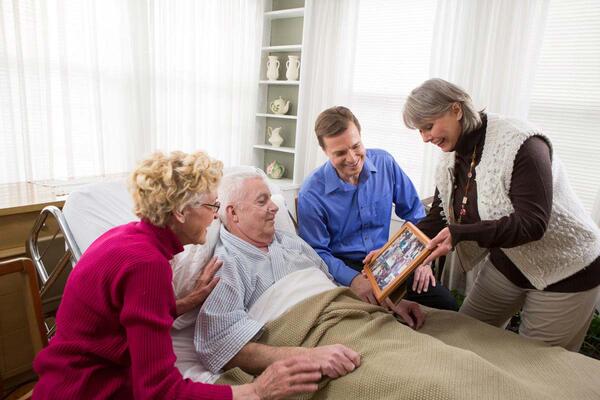
Vein Health and Aging: What Families Should Know About Care Options
Vein health becomes ever-more essential as people age. Elderly individuals in particular are vulnerable to varicose veins that can cause discomfort and more serious health complications if left untreated. Maintaining good venous health is essential to overall well-being during aging as it impacts mobility and quality of life.
Families play a critical role in ensuring that their elderly loved ones receive proper vein care. By staying informed and supporting medical decisions, families can help manage and prevent vein-related problems, contributing to healthier aging.
This sets the stage for a deeper understanding of how aging affects vein health and the available care options.
How Aging Affects Vein Health
As individuals age, their venous system undergoes several changes that can lead to conditions like chronic venous insufficiency (CVI). Aging causes the veins to lose elasticity, and the valves within them may weaken, making it difficult for blood to flow efficiently back to the heart. This can result in blood pooling in the legs, leading to swelling and discomfort.
Common vein conditions among the elderly include varicose veins, spider veins and venous ulcers. Varicose veins are large twisted veins often visible beneath the skin that cause discomfort; spider veins are smaller red or blue veins nearer to the skin's surface that have no direct impact on circulation; while venous ulcers form when blood pools in legs resulting in skin breakdown and slow healing wounds.
Understanding these changes is crucial for managing and preventing further complications(NCBI).
Risk Factors and Preventive Measures
As people age, various risk factors contribute to vein health problems. Living an inactive lifestyle reduces blood circulation, weakening veins over time. Obesity adds extra weight pressure on veins, increasing the chances of varicose veins or other venous conditions developing. Genetics is another significant risk factor; individuals who have family histories of similar disorders are at a greater risk. It is vitally important for individuals to take proactive steps when it comes to protecting vein health - so lifestyle and hereditary factors must all play roles when considering vein health.
Preventive measures can significantly reduce the risk of developing severe venous conditions. Engaging in regular physical activity is crucial as it helps to maintain good blood circulation, which supports vein health.Weight management is also key in order to prevent varicose veins. Regular check-ups with healthcare providers are also invaluable in detecting early signs of vein issues so as to allow timely intervention if necessary, and are integral parts of promoting overall well-being as well as stopping progression of vein-related conditions in older adults.
Exploring Care Options
Non-Invasive Treatments
Non-invasive therapies are often the first step to successfully managing vein health issues. Compression therapy entails wearing specially designed stockings that facilitate improved blood flow in your legs, while lifestyle modifications like increasing physical activity and managing weight are important ways to manage symptoms. Medication may be prescribed to reduce swelling and increase circulation to alleviate discomfort without surgery being necessary.
Advanced Medical Interventions
When non-invasive treatments fail to provide relief, advanced medical interventions may be required. Sclerotherapy involves injecting a solution into affected veins to cause them to collapse and eventually fade, laser therapy uses focused light beams to close off varicose veins, laser vein stripping uses focused light waves, while surgical options, such as vein stripping or vein tie off procedures provide permanent solutions to serious vein conditions. These procedures typically offer more effective and long-term solutions.
Seeking Specialized Care
Consulting a vein specialist is essential for personalized treatment. Specialists can assess the severity of the condition and recommend the most appropriate treatment options. Vein911’s Clearwater location offers comprehensive vein care services, including advanced treatments and personalized care plans. Families should consider seeking specialized care to ensure their loved ones receive the best possible treatment. For more information, visit Vein911 Clearwater.
This section provides a balanced overview of both non-invasive and advanced treatment options, emphasizing the importance of seeking professional care.
Family’s Role in Managing Vein Health
Support and Monitoring
Families play a crucial role in managing vein health by monitoring symptoms and ensuring that elderly loved ones adhere to their treatment plans. Regularly checking for signs of worsening conditions, such as increased swelling or pain, helps in early detection and intervention. Additionally, families should stay informed about available treatment options, enabling them to support their loved ones in making informed decisions about their care.
Decision-Making Support
Family involvement in medical decisions is vital to effective vein care management. By contributing to care planning, family can offer emotional support while helping coordinate appointments and follow ups - leading to improved health outcomes for their loved ones.
Conclusion
Maintaining vein health is crucial for the elderly, and families play an essential role in supporting this aspect of their loved ones' well-being. By staying informed and proactive, families can help prevent and manage vein conditions, ensuring better health outcomes. Early intervention and regular monitoring are key to effective care. For those facing vein issues, consulting a specialist is vital.